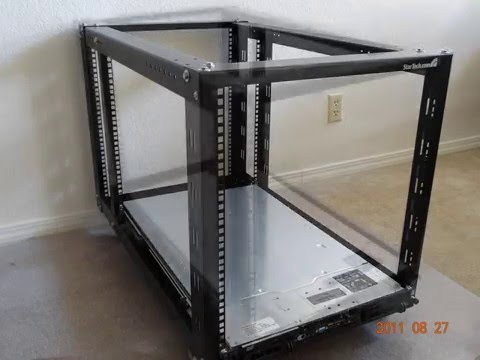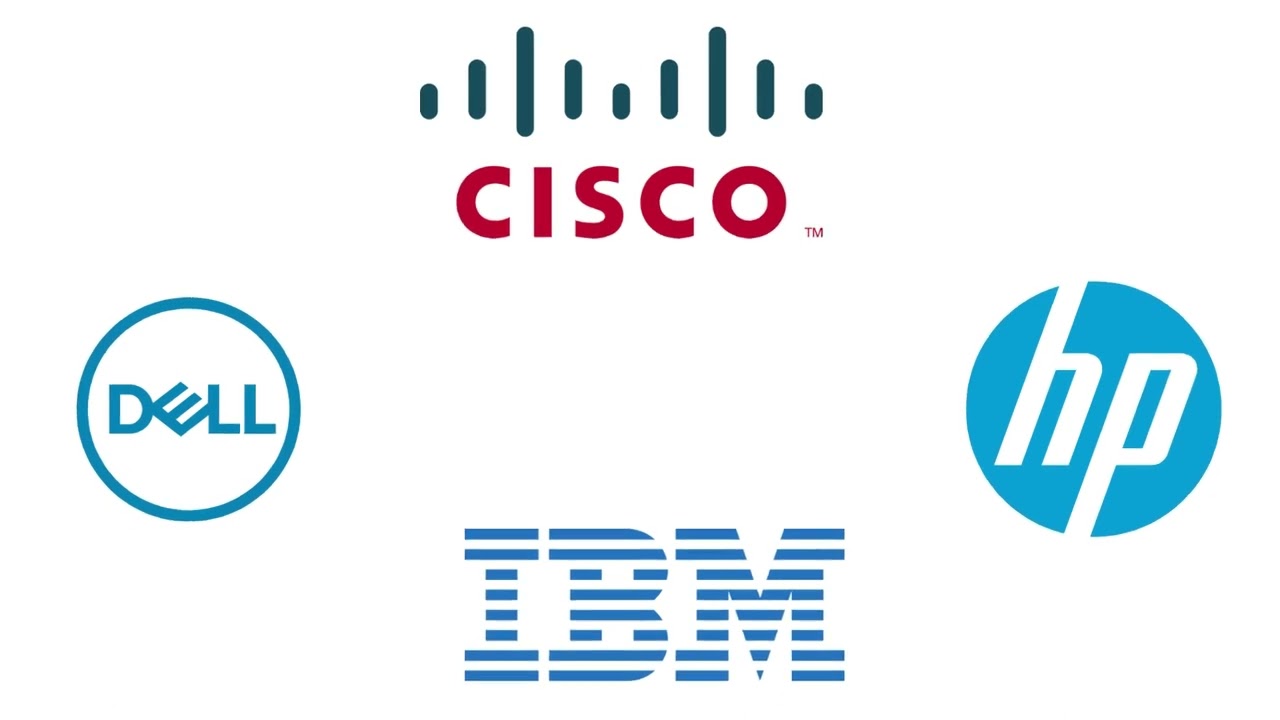Google plans to resume the Wear OS 5 rollout for older Pixel Watches “later this year,” as previously reported by Droid Life.
Technology
New rounds will help startups challenge well-funded rivals

Welcome to Startups Weekly — your weekly recap of everything you can’t miss from the world of startups. Want it in your inbox every Friday? Sign up here.
It was once again the private market that generated the most funding-related news in the startup world this week, both for companies and for funds. But it would be a mistake to forget the public sector; startups gathered with lawmakers, while others obtained and lost licenses.
Most interesting startup stories from the week

This week offered reminders that for better or for worse, startups have to interact with regulators to retain licenses and stay out of trouble.
Bumpy road: Fisker‘s bankruptcy process isn’t going smoothly. The failed EV manufacturer is under investigation by the SEC, and earlier this week, American Lease, the company buying its remaining fleet, said it might not complete the purchase.
Snapped: LoanSnap lost its license to operate in Connecticut, four months after TechCrunch’s exclusive reporting about how the AI-powered mortgage startup was facing multiple lawsuits.
Licensed to bill: French unicorn Alan expanded into Canada, where there hadn’t been any new health insurance company since 1957. The startup plans to hire 50 people in the country.
Most interesting fundraises this week

Some of the rounds we learned about this week were quite big, but perhaps not overly so considering the problems these startups are tackling and the competitors they face.
Striking gold: KoBold Metals, a minerals discovery startup, raised $491 million of a targeted $527 million round, according to an SEC filing. The company uses AI to surface data that can help locate cobalt, copper, lithium, and nickel.
Well supplied: Auger, a company developing AI-powered supply chain tools, raised a giant $100 million seed round. Such a big raise could be because of its high-profile CEO, Dave Clark, formerly of Amazon and Flexport. But Auger also has to compete with well-funded rivals.
ProteinGPT: Basecamp Research, a London-based startup unrelated to Basecamp the product management platform, raised a $60 million Series B round of funding to build a “GPT for biology.” The company claims that its foundational model, BaseFold, outperforms DeepMind’s AlphaFold 2 at predicting large, complex proteins.
AMD vs. Nvidia: Cloud infrastructure startup TensorWave wants to offer an alternative to Nvidia hardware for AI compute and secured a $43 million round with participation from AMD Ventures. It is based in Las Vegas, where energy costs are lower than in many major U.S. cities.
Lifeline: Qantev, a Paris-based startup that sells enterprise software helping health and life insurers use AI to process claims, raised a €30 million Series B round of funding led by Blossom Capital.
Most interesting VC and fund news this week

Climate incubation: Montreal-based venture studio Diagram expanded into climate tech with the launch of its fourth studio fund, Diagram Climate Tech, which was oversubscribed and closed at $58 million.
Follow-on: General Catalyst is working on raising a “continuation” fund worth up to $1 billion, sources told TechCrunch.
Balance: NFX laid off four employees in September — one product leader and three engineers. The VC firm is looking to “rebalance” its resources toward its investing team, general partner Pete Flint told TechCrunch.
Last but not least

Shield AI co-founder Brandon Tseng talked to TechCrunch about defense tech and the war in Ukraine, one week after he and other startup execs gathered with members of the U.S. House Armed Services Committee in a rare public hearing in Silicon Valley. A former Navy SEAL, Tseng is firmly opposed to fully autonomous weapons.
Servers computers
startech 19 inch 12u open server rack frame

StarTech.com 4 Post Server Equipment Open Rack Frame .
source
Technology
Here’s the full list of 39 US AI startups that have raised $100M or more in 2024

For some, AI fatigue is real — but clearly venture investors haven’t grown tired of the category.
AI deals continued to dominate venture funding during the third quarter. AI companies raised $18.9 billion in Q3, according to Crunchbase data. That figure represents 28% of all venture funding.
The third quarter also saw the close of the largest venture deal of all time: OpenAI raised a behemoth $6.6 billion round. OpenAI’s deal was one of six AI funding rounds over $1 billion in 2024.
Here are the U.S.-based AI companies that raised $100 million or more so far in 2024:
October
- EvenUp, an AI-powered legaltech company, raised a $135 million Series D round led by Bain Capital Ventures with participation from SignalFire and Lightspeed, among others. The October 8 round valued the startup at $1 billion.
- Berkeley-based KoBold Metals raised $491.5 million in a recent venture round. The investors aren’t disclosed, but in the past, the company raised from VCs including Bond and Andreessen Horowitz.
- AI-powered software development platform Poolside closed a $500 million Series B round on October 2. The round was led by Bain Capital Ventures with participation from Redpoint, StepStone, and Nvidia, among others. The round values the company at $3 billion.
- OpenAI announced its highly anticipated venture round on October 2. The $6.6 billion round was the largest venture round of all time and valued the company at $157 billion. Thrive Capital led the round and was joined by other investors, including Tiger Global and SoftBank.
September
- Enterprise search startup Glean announced its second funding round of 2024 on September 10. The company raised a $260 million Series E round that valued it at $4.5 billion, marking an 87.5% increase in valuation since its February round.
- Safe Superintelligence, an AI research lab founded by former OpenAI co-founder Ilya Sutskever and AI investor Daniel Gross. It announced a $1 billion raise at a $4 billion valuation on September 4. Andreessen Horowitz, Sequoia and DST Global participated in the round, among others.
August
- AI coding startup Magic raised its second mega-round of the year on August 29. The San Francisco-based company raised $320 million in a Series C round. CapitalG, Sequoia and Jane Street Capital participated in the round, among others. The company last raised a $117 million Series B in February.
- General Catalyst led the $150 million Series C round into Codeium, an AI-powered coding platform, that closed on August 29. The round also included Kleiner Perkins and Greenoaks and valued Codeium at $1.2 billion.
- DevRev, which makes AI support agents, garnered a $1.1 billion valuation after its sizable early-stage raise. The Silicon Valley-based company raised a $100 million Series A round that included investors like Khosla Ventures, Mayfield and Param Hansa Values. The company was founded in 2020.
- San Francisco-based Abnormal Security raised $250 million for its AI-driven email security company. This funding round was led by Wellington Management with participation from Menlo Ventures, Greylock and Insight Partners. The company is valued at more than $5 billion.
- Groq — not to be confused with Grok — announced a $640 million Series D round on August 5 led by BlackRock. The AI chip startup also received investment from Type One Ventures, Verdure Capital Management and Neuberger Berman, among others. The company is valued at more than $3 billion.
July
- Renowned AI researcher Fei-Fei Li’s startup World Labs raised a $100 million round in July, sources told TechCrunch. The startup is already valued at more than $1 billion according to the Financial Times. World Labs is looking to build AI models that can accurately estimate the three-dimensional physicality of real-world objects.
- Legal tech company Harvey announced a $100 million Series C round on July 23. The round was led by Google Ventures, with participation from OpenAI, Kleiner Perkins and Sequoia. This round values the San Francisco-based company at $1.5 billion.
- Hebbia, $130 million: Andreessen Horowitz led the round for Hebbia that closed July 8. The startup, which uses generative AI to search large documents, also raised money from Peter Thiel, Index Ventures and Google Ventures and garnered a $700 million valuation.
- Skild AI, $300 million: Pittsburgh-based Skild AI announced a $300 million Series A round on July 9 that valued the company at $1.5 billion. The round was led by Lightspeed Venture Partners, Coatue and Jeff Bezos’ Bezos Expeditions with participation from Sequoia, Menlo Ventures and General Catalyst, among others. Skild AI builds tech to power robots.
June
- Bright Machines, $106 million: BlackRock led a $106 million Series C round into Bright Machines that closed on June 25. Nvidia, Microsoft and Eclipse Ventures, among others, also participated. The startup makes both smart robotics and AI-driven software and has raised more than $437 million in total funding.
- Etched.ai, $120 million: San Francisco-based Etched.ai raised a $120 million Series A round on June 25. The round was led by Primary Venture Partners and Positive Sum with participation from Two Sigma Ventures, Peter Thiel and Kyle Vogt, among others. Etched.ai is working to make chips that can run AI models faster and cheaper than GPUs.
- EvolutionaryScale, $142 million: New York-based EvolutionaryScale is developing biological AI models for therapeutic design. It raised a $142 million seed round that closed on June 25. The round was led by Lux Capital, former GitHub CEO Nat Friedman and Daniel Gross, an angel investor and former head of AI at Y Combinator. The company was founded in 2023.
- AKASA, $120 million: Healthcare revenue cycle automation platform Akasa announced a $120 million round on June 18. The San Francisco-based startup has collected $205 million in total funding and has raised from investors, including Andreessen Horowitz, Costanoa Ventures and Bond in prior rounds.
- AlphaSense, $650 million: New York-based AlphaSense raised a $650 million Series F round that was announced on June 11. The round was led by Viking Global Investors and BDT & MSD Partners with participation from CapitalG, SoftBank Vision Fund and Goldman Sachs, among others. AlphaSense is a market intelligence platform founded in 2008. The company has raised more than $1.4 billion in venture funding and was most recently valued at $4 billion.
May
- xAI, $6 billion: Elon Musk’s xAI raised a jaw-dropping $6 billion Series B round on May 31 from investors, including Sequoia, Valor Equity Partners and Fidelity, among others. The startup is building an AI platform that will “accelerate human scientific discovery” and is valued at an equally stunning $24 billion.
- Scale AI, $1 billion: Scale AI, a startup that provides data-labeling services to companies for training AI models, raised $1 billion in May. The Series F round was led by Accel with participation from Tiger Global, Spark Capital and Amazon, among others. San Francisco-based Scale AI has raised more than $1.6 billion in total and is currently valued at nearly $14 billion.
- Suno, $125 million: AI-music creation platform Suno raised $125 million in a Series B round that closed on May 21. The round values the Cambridge, Massachusetts, startup at $500 million. Founder Collective, Lightspeed Venture Partners and Matrix participated in the round in addition to former GitHub CEO Nat Friedman and former head of AI at Y Combinator Daniel Gross.
- Weka, $140 million: Silicon Valley-based Weka created an AI-native data platform and raised $140 million in a Series E round that closed on May 13. The funding was led by Valor Equity Partners with participation from Qualcomm Ventures, Nvidia and Hitachi Ventures, among others. The startup was valued at $1.6 billion.
- CoreWeave, $1.1 billion: New Jersey-based GPU infrastructure provider CoreWeave raised $1.1 billion in a Series C round that closed on May 1. Coatue led the round with participation from Fidelity, Altimeter Capital and Magnetar Capital, among others. CoreWeave was launched in 2017 and is valued at $19 billion.
April
- Blaize, $106 million: AI computing platform company Blaize raised $106 million in a Series D round that was announced on April 29. The round had participation from investors, including Temasek, Franklin Templeton and Bess Ventures, among others. The company was founded in 2010 and has raised $242 million.
- Augment, $227 million: Palo Alto-based Augment raised $227 million for its AI coding assistance startup. The startup’s Series B round was announced on April 24. Lightspeed Venture Partners, Index Ventures and Sutter Hill Ventures participated in the round, which valued the startup just shy of $1 billion.
- Cognition, $175 million: Founders Fund led applied AI lab startup Cognition’s $175 million round that closed on April 24. This round came just about a month after the firm raised a $21 million Series A round in March from Founders Fund and numerous other investors, including Ramp co-founder Eric Glyman, Stripe co-founders Patrick and John Collison, and DoorDash co-founder Tony Xu. The company was founded in November 2023 and is already valued at nearly $2 billion.
- Xaira Therapeutics, $1 billion: San Francisco-based AI drug discovery startup Xaira Therapeutics raised a $1 billion Series A round. Foresite Capital and ARCH Venture Partners led the round that was announced on April 23. Sequoia, NEA and Lux Capital participated in the round, among many others.
- Cyera, $300 million: Coatue led the recent $300 million Series C round into AI-powered data security platform Cyera that closed on April 9. The round valued New York-based startup at $1.4 billion. Sequoia, Redpoint and Accel also participated in the round, among others.
March
- Celestial AI, $175 million: Celestial AI, founded in 2020, is building an optical interconnect technology platform for data centers and AI solutions and raised a $175 million Series C round on March 27, which brought its total funding amount to $338 million. The round was led by Thomas Tull’s US Innovative Technology Fund with participation from M Ventures, Temasek and Tyche Partners, among others.
- FundGuard, $100 million: FundGuard is a New York-based startup offering an AI-powered investment accounting operating system that raised $100 million at a $400 million valuation. The Series C round closed on March 25 and was led by Key1 Capital with participation from Hamilton Lane, Blumberg Capital and Team8, among others.
- Together AI, $106 million: Salesforce Ventures led Together AI’s $106 million Series A round that valued the company at $1.2 billion. Together AI is a platform designed to help create infrastructure and open source generative AI for developing AI models. NEA, Kleiner Perkins and Lux Capital also participated in the round, among others. The round was announced on March 13.
- Zephyr AI, $111 million: Fairfax Station, Virginia-based Zephyr AI raised a $111 million Series A round that closed on March 13. Revolution Growth, Eli Lilly and Company Foundation, EPIQ Capital Group and investor Jeff Skoll all participated in the round. The startup, founded in 2020, uses AI to enhance drug discovery and precision medicine. It has raised $129.5 million total so far.
February
- Glean, $203 million: AI-driven enterprise search startup Glean raised $203 million in a February 27 round that valued the startup at $2.2 billion. The Series D round was led by Lightspeed Venture Partners and Kleiner Perkins with participation from Sequoia and Databricks Ventures, among others. The Silicon Valley-based startup has raised more than $350 million in venture funding and its founder, Arvind Jain, was recently interviewed on TechCrunch’s Found podcast.
- Figure, $675 million: Silicon Valley-based AI robotics startup Figure raised a $675 million Series B round that closed on February 24. The round valued the startup at nearly $2.7 billion. Nvidia, OpenAI and Microsoft participated in the round, among others. The startup was founded in 2022 and has raised more than $850 million.
- Abridge, $150 million: Pittsburgh-based Abridge, which uses AI to transcribe medical conversations, raised a $150 million Series C round that closed on February 23. The round was led by Redpoint and Lightspeed Venture Partners with participation from USV, IVP and Spark Capital, among others. This round brings the six-year-old company’s valuation to $850 million.
- Recogni, $102 million: The company designs high-output but low-power AI interface solutions, and it raised a $102 million Series C round on February 20. The round was led by GreatPoint Ventures and Celesta Capital. Pledge Ventures, Mayfield and DNS Capital also contributed to the round.
- Lambda, $320 million: San Francisco-based deep learning infrastructure company Lambda raised $320 million in a Series C round that was announced on February 15. The round was led by Thomas Tull’s US Innovative Technology Fund with participation from Gradient Ventures, Mercato Partners and T. Rowe Price, among others. Lambda has raised more than $900 million in venture capital and was most recently valued at $1.5 billion.
- Magic, $117 million: AI coding startup Magic raised a $117 million Series B round that closed on February 12. The round was led by NFDG Ventures with participation from CapitalG and angel investor Elad Gil. The San Francisco-based company has raised more than $145 million in total capital.
January
- Kore.ai, $150 million: A startup building conversational AI for enterprises, Kore.ai raised a $150 million Series D round that was announced on January 30. FTV Capital led the round into the Orlando, Florida-based company. Nvidia, Vistara Growth, and NextEquity Partners participated as well, among others. Kore.ai was founded in 2013 and has raised more than $223 million in funding.
This piece was originally published on July 13, 2024, and was updated on September 9, 2024 and October 11, 2024, to include more deals.
This piece has been updated to correct Glean’s current valuation.
Technology
Google pulled its Wear OS update for old Pixel Watches to fix a big problem
If the update bricked your watch, there are ways to get it working again. Google’s support site has a bunch of general troubleshooting steps for getting out of a frozen watch, as well as instructions on how to factory reset from Fastboot if you can’t get to the usual settings.
If your Pixel Watch is healthy and working, Google also just rolled out a neat new feature that pops a notification on your phone once your watch is fully charged up — and you don’t need Wear OS 5 for that.
Servers computers
HOMELAB #2: APC Netshelter 24U w/ Sonnet Rack MacMini

In the world of data center you’ll go through a rite of passage including such fun as grilling your backside on a cold plenum floor, searching for that elusive screw that fell from your hand, supporting a 15kg server with one hand as Atlas holds the world. With this new world of cloud I fear for the loss of the art.
Anyway, if you are interested, here is the Sonnet RackMacMini experience.
Best served ice cold. .
source
Technology
AI tastebuds are better at identifying what’s in food than you


Picking out individual ingredients from a dish can be a fun, if difficult, part of a meal. Professional chefs and food scientists can spend years refining their palettes. Now, a robot may be able to join in the activity thanks to the researchers behind a robotic taster that combines AI and an electronic tongue capable of detecting tiny differences in flavor.
The Penn State research team has published a paper detailing how the AI ‘brain’ uses the artificial tongue to detect how much water is in a cup of milk, the mix of beans in a coffee blend, and even incipient rot in fruit juice that would be impossible for a human to spot.
Electronics to identify components in a mixture isn’t a new idea. That’s how machines can measure things like acidity and temperature. But, what the researchers have done goes beyond that by using AI to mimic the way your tongue, nose, and brain interpret the taste of things beyond a simple detection of pH balance. Using the advanced sensors known as ISFET (graphene-based ion-sensitive field-effect transistor), the electronic tongue can measure a lot of complex chemicals at the same time instead of needing multiple kinds of sensors like a thermometer and pH testing stick.
The sensors produce a huge amount of data, which standard computer processors might take a while to sort out, and the analysis wouldn’t tell you much about how watered down the milk is or how freshly squeezed your orange juice is. Instead, the researchers used AI in the form of a neural network that can mimic some of how humans process taste.
Flavor AI
After teaching the AI how different chemicals affect the electronic tongue’s sensors, the neural network could accurately identify different types of soda and the freshness of juice more than 80% of the time. That was just the beginning, however. When the scientists took the metaphorical leash off the AI and let it come up with its own way of analyzing the data, the AI’s accuracy shot up to 95%, barely ever getting a wrong answer.
The combination of measuring subtle aspects of food plus using AI to judge what they mean is an impressive simulation of how humans taste things. It can also do so when a difference is too subtle for human perception, like if milk isn’t bad yet but will be soon.
Food tests for purity and freshness are only some of what an accurate AI tongue could do for people. Taste is, at its most basic level, a way of identifying chemicals. That means the AI taster could help in more than just the kitchen. It could theoretically help in industrial factories or in medical diagnostics, spotting biomarkers of disease or changes in your health. These concepts are still in the early discussion phase, but the electronic tongue may be a taste of the future.
You might also like
Servers computers
blade Server Market

blade Server Market
source
-

 Science & Environment3 weeks ago
Science & Environment3 weeks agoHyperelastic gel is one of the stretchiest materials known to science
-

 Science & Environment3 weeks ago
Science & Environment3 weeks agoHow to unsnarl a tangle of threads, according to physics
-

 Technology3 weeks ago
Technology3 weeks agoWould-be reality TV contestants ‘not looking real’
-

 Womens Workouts3 weeks ago
Womens Workouts3 weeks ago3 Day Full Body Women’s Dumbbell Only Workout
-

 Science & Environment3 weeks ago
Science & Environment3 weeks ago‘Running of the bulls’ festival crowds move like charged particles
-

 Science & Environment3 weeks ago
Science & Environment3 weeks agoMaxwell’s demon charges quantum batteries inside of a quantum computer
-

 Science & Environment3 weeks ago
Science & Environment3 weeks agoLiquid crystals could improve quantum communication devices
-

 Science & Environment3 weeks ago
Science & Environment3 weeks agoQuantum ‘supersolid’ matter stirred using magnets
-

 Science & Environment3 weeks ago
Science & Environment3 weeks agoSunlight-trapping device can generate temperatures over 1000°C
-

 Science & Environment3 weeks ago
Science & Environment3 weeks agoITER: Is the world’s biggest fusion experiment dead after new delay to 2035?
-
News4 weeks ago
the pick of new debut fiction
-

 Science & Environment3 weeks ago
Science & Environment3 weeks agoHow to wrap your mind around the real multiverse
-

 Science & Environment3 weeks ago
Science & Environment3 weeks agoWhy this is a golden age for life to thrive across the universe
-

 News3 weeks ago
News3 weeks agoOur millionaire neighbour blocks us from using public footpath & screams at us in street.. it’s like living in a WARZONE – WordupNews
-

 Science & Environment3 weeks ago
Science & Environment3 weeks agoQuantum forces used to automatically assemble tiny device
-

 Science & Environment3 weeks ago
Science & Environment3 weeks agoNerve fibres in the brain could generate quantum entanglement
-

 Science & Environment2 weeks ago
Science & Environment2 weeks agoX-rays reveal half-billion-year-old insect ancestor
-

 Technology2 weeks ago
Technology2 weeks agoIs sharing your smartphone PIN part of a healthy relationship?
-

 Science & Environment3 weeks ago
Science & Environment3 weeks agoA slight curve helps rocks make the biggest splash
-

 Science & Environment3 weeks ago
Science & Environment3 weeks agoPhysicists are grappling with their own reproducibility crisis
-
Business2 weeks ago
Eurosceptic Andrej Babiš eyes return to power in Czech Republic
-

 Science & Environment3 weeks ago
Science & Environment3 weeks agoTime travel sci-fi novel is a rip-roaringly good thought experiment
-

 Science & Environment3 weeks ago
Science & Environment3 weeks agoLaser helps turn an electron into a coil of mass and charge
-

 Science & Environment3 weeks ago
Science & Environment3 weeks agoNuclear fusion experiment overcomes two key operating hurdles
-

 News4 weeks ago
News4 weeks ago▶️ Hamas in the West Bank: Rising Support and Deadly Attacks You Might Not Know About
-

 News3 weeks ago
News3 weeks agoYou’re a Hypocrite, And So Am I
-

 Sport3 weeks ago
Sport3 weeks agoJoshua vs Dubois: Chris Eubank Jr says ‘AJ’ could beat Tyson Fury and any other heavyweight in the world
-

 Science & Environment3 weeks ago
Science & Environment3 weeks agoCaroline Ellison aims to duck prison sentence for role in FTX collapse
-

 News3 weeks ago
News3 weeks ago▶️ Media Bias: How They Spin Attack on Hezbollah and Ignore the Reality
-

 Technology2 weeks ago
Technology2 weeks ago‘From a toaster to a server’: UK startup promises 5x ‘speed up without changing a line of code’ as it plans to take on Nvidia, AMD in the generative AI battlefield
-

 Football2 weeks ago
Football2 weeks agoFootball Focus: Martin Keown on Liverpool’s Alisson Becker
-

 Science & Environment3 weeks ago
Science & Environment3 weeks agoRethinking space and time could let us do away with dark matter
-

 News4 weeks ago
News4 weeks agoNew investigation ordered into ‘doorstep murder’ of Alistair Wilson
-
News3 weeks ago
The Project Censored Newsletter – May 2024
-

 Technology2 weeks ago
Technology2 weeks agoQuantum computers may work better when they ignore causality
-
Business2 weeks ago
Should London’s tax exiles head for Spain, Italy . . . or Wales?
-

 MMA2 weeks ago
MMA2 weeks agoConor McGregor challenges ‘woeful’ Belal Muhammad, tells Ilia Topuria it’s ‘on sight’
-

 Sport2 weeks ago
Sport2 weeks agoWatch UFC star deliver ‘one of the most brutal knockouts ever’ that left opponent laid spark out on the canvas
-

 Science & Environment3 weeks ago
Science & Environment3 weeks agoA new kind of experiment at the Large Hadron Collider could unravel quantum reality
-

 News3 weeks ago
News3 weeks agoIsrael strikes Lebanese targets as Hizbollah chief warns of ‘red lines’ crossed
-

 Science & Environment3 weeks ago
Science & Environment3 weeks agoFuture of fusion: How the UK’s JET reactor paved the way for ITER
-

 Technology2 weeks ago
Technology2 weeks agoGet ready for Meta Connect
-
Business2 weeks ago
Ukraine faces its darkest hour
-

 Health & fitness3 weeks ago
Health & fitness3 weeks agoThe secret to a six pack – and how to keep your washboard abs in 2022
-

 Technology3 weeks ago
Technology3 weeks agoThe ‘superfood’ taking over fields in northern India
-

 Science & Environment3 weeks ago
Science & Environment3 weeks agoUK spurns European invitation to join ITER nuclear fusion project
-

 Science & Environment3 weeks ago
Science & Environment3 weeks agoWhy we need to invoke philosophy to judge bizarre concepts in science
-

 Science & Environment3 weeks ago
Science & Environment3 weeks agoA tale of two mysteries: ghostly neutrinos and the proton decay puzzle
-

 News3 weeks ago
News3 weeks agoWhy Is Everyone Excited About These Smart Insoles?
-

 Health & fitness2 weeks ago
Health & fitness2 weeks agoThe 7 lifestyle habits you can stop now for a slimmer face by next week
-

 CryptoCurrency3 weeks ago
CryptoCurrency3 weeks agoCardano founder to meet Argentina president Javier Milei
-
Politics3 weeks ago
UK consumer confidence falls sharply amid fears of ‘painful’ budget | Economics
-

 MMA3 weeks ago
MMA3 weeks agoRankings Show: Is Umar Nurmagomedov a lock to become UFC champion?
-

 Science & Environment3 weeks ago
Science & Environment3 weeks agoMeet the world's first female male model | 7.30
-

 News3 weeks ago
News3 weeks agoFour dead & 18 injured in horror mass shooting with victims ‘caught in crossfire’ as cops hunt multiple gunmen
-

 Womens Workouts3 weeks ago
Womens Workouts3 weeks ago3 Day Full Body Toning Workout for Women
-

 Technology3 weeks ago
Technology3 weeks agoRobo-tuna reveals how foldable fins help the speedy fish manoeuvre
-

 Health & fitness3 weeks ago
Health & fitness3 weeks agoThe maps that could hold the secret to curing cancer
-

 Science & Environment3 weeks ago
Science & Environment3 weeks agoBeing in two places at once could make a quantum battery charge faster
-

 News4 weeks ago
News4 weeks agoHow FedEx CEO Raj Subramaniam Is Adapting to a Post-Pandemic Economy
-

 CryptoCurrency3 weeks ago
CryptoCurrency3 weeks agoDecentraland X account hacked, phishing scam targets MANA airdrop
-

 CryptoCurrency3 weeks ago
CryptoCurrency3 weeks agoLow users, sex predators kill Korean metaverses, 3AC sues Terra: Asia Express
-

 Womens Workouts3 weeks ago
Womens Workouts3 weeks agoBest Exercises if You Want to Build a Great Physique
-

 Womens Workouts3 weeks ago
Womens Workouts3 weeks agoEverything a Beginner Needs to Know About Squatting
-

 TV3 weeks ago
TV3 weeks agoCNN TÜRK – 🔴 Canlı Yayın ᴴᴰ – Canlı TV izle
-

 Science & Environment3 weeks ago
Science & Environment3 weeks agoCNN TÜRK – 🔴 Canlı Yayın ᴴᴰ – Canlı TV izle
-

 Servers computers2 weeks ago
Servers computers2 weeks agoWhat are the benefits of Blade servers compared to rack servers?
-

 Technology2 weeks ago
Technology2 weeks agoThe best robot vacuum cleaners of 2024
-

 News3 weeks ago
News3 weeks agoChurch same-sex split affecting bishop appointments
-

 Politics3 weeks ago
Politics3 weeks agoTrump says he will meet with Indian Prime Minister Narendra Modi next week
-

 Science & Environment3 weeks ago
Science & Environment3 weeks agoPhysicists have worked out how to melt any material
-

 Sport3 weeks ago
Sport3 weeks agoUFC Edmonton fight card revealed, including Brandon Moreno vs. Amir Albazi headliner
-

 CryptoCurrency3 weeks ago
CryptoCurrency3 weeks agoEthereum is a 'contrarian bet' into 2025, says Bitwise exec
-

 Science & Environment3 weeks ago
Science & Environment3 weeks agoHow one theory ties together everything we know about the universe
-
Business3 weeks ago
JPMorgan in talks to take over Apple credit card from Goldman Sachs
-

 Science & Environment3 weeks ago
Science & Environment3 weeks agoQuantum time travel: The experiment to ‘send a particle into the past’
-

 Science & Environment3 weeks ago
Science & Environment3 weeks agoTiny magnet could help measure gravity on the quantum scale
-

 Science & Environment3 weeks ago
Science & Environment3 weeks agoMost accurate clock ever can tick for 40 billion years without error
-

 CryptoCurrency3 weeks ago
CryptoCurrency3 weeks agoBitcoin miners steamrolled after electricity thefts, exchange ‘closure’ scam: Asia Express
-

 CryptoCurrency3 weeks ago
CryptoCurrency3 weeks agoDorsey’s ‘marketplace of algorithms’ could fix social media… so why hasn’t it?
-

 CryptoCurrency3 weeks ago
CryptoCurrency3 weeks agoDZ Bank partners with Boerse Stuttgart for crypto trading
-

 CryptoCurrency3 weeks ago
CryptoCurrency3 weeks agoBitcoin bulls target $64K BTC price hurdle as US stocks eye new record
-

 CryptoCurrency3 weeks ago
CryptoCurrency3 weeks agoBlockdaemon mulls 2026 IPO: Report
-
Business3 weeks ago
Thames Water seeks extension on debt terms to avoid renationalisation
-
Politics3 weeks ago
‘Appalling’ rows over Sue Gray must stop, senior ministers say | Sue Gray
-

 CryptoCurrency3 weeks ago
CryptoCurrency3 weeks agoCoinbase’s cbBTC surges to third-largest wrapped BTC token in just one week
-

 News2 weeks ago
News2 weeks agoUS Newspapers Diluting Democratic Discourse with Political Bias
-

 Technology3 weeks ago
Technology3 weeks agoiPhone 15 Pro Max Camera Review: Depth and Reach
-

 News3 weeks ago
News3 weeks agoBrian Tyree Henry on voicing young Megatron, his love for villain roles
-

 Science & Environment3 weeks ago
Science & Environment3 weeks agoHow do you recycle a nuclear fusion reactor? We’re about to find out
-

 CryptoCurrency3 weeks ago
CryptoCurrency3 weeks agoRedStone integrates first oracle price feeds on TON blockchain
-

 CryptoCurrency3 weeks ago
CryptoCurrency3 weeks ago‘No matter how bad it gets, there’s a lot going on with NFTs’: 24 Hours of Art, NFT Creator
-
Business3 weeks ago
How Labour donor’s largesse tarnished government’s squeaky clean image
-

 News3 weeks ago
News3 weeks agoBrian Tyree Henry on voicing young Megatron, his love for villain roles
-

 Travel3 weeks ago
Travel3 weeks agoDelta signs codeshare agreement with SAS
-

 Politics2 weeks ago
Politics2 weeks agoHope, finally? Keir Starmer’s first conference in power – podcast | News
-

 Technology2 weeks ago
Technology2 weeks agoMicrophone made of atom-thick graphene could be used in smartphones
-

 CryptoCurrency3 weeks ago
CryptoCurrency3 weeks agoLouisiana takes first crypto payment over Bitcoin Lightning
-

 CryptoCurrency3 weeks ago
CryptoCurrency3 weeks agoCrypto scammers orchestrate massive hack on X but barely made $8K
-

 CryptoCurrency3 weeks ago
CryptoCurrency3 weeks agoTelegram bot Banana Gun’s users drained of over $1.9M

You must be logged in to post a comment Login